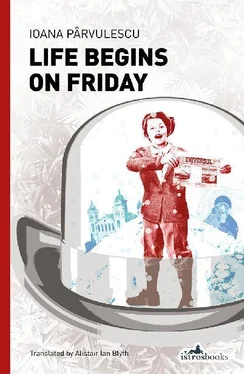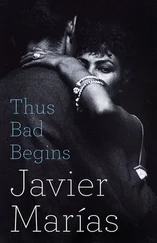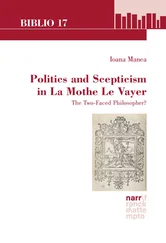It is obvious that his head is full of his patients today too. Or full of shortages of medicines and money problems, or maybe of his assistant at the surgery, a worthless student, whom he wants to dismiss, but is not brave enough. He does not seem to hear what is said to him. He merely nods, as if he has heard and murmurs yes, yes , which might just as well mean no, no or anything else. Agatha was accustomed to it and did not take it amiss, but sometimes she did have a great need of a listening ear. When she chose between the two men, she knew that by marrying the doctor she would be the fifth wheel on the cart, the spare wheel. But it was not easy, and sometimes, like today, it was very hard. Agatha’s eyelids were red with tears and, strangely, this time the doctor’s ear immediately ‘heard’ those inflamed eyes and he became troubled. Mrs Margulis had the impression that her husband’s sense of sight was far more developed than ordinary people’s, because every small change in her face, in the colour of her skin, every bag under her eye, every signal her body gave he perceived with a hawk eye, from a great distance, and even if she tried to disguise such signals, she never managed to make them go unobserved. And so, upset, she placed a newspaper under his eyes — it was Saturday’s — and the doctor read quickly:
Question of the Day
Protection of the Trades
We have had occasion to speak here of a society of ladies that has been formed with the purpose of providing money, clothes, books and dowries to the poor girls who study at the trade schools or even in private workshops. With all our heart we approved this undertaking.. .
‘This was your idea, two or three years ago, or when was it?’
Agatha nodded her head, because she felt a lump in her throat.
A fact that we came across recently caused us to remember this society and to note a great lack. This lack is as follows: our trade schools have produced graduates for a number of years, trained as seamstresses and in the art of making artificial flowers and other trades. What have these professionally trained girls done, what do they do? As chance would have it, we came across one.
With the small capital she received on finishing the school, she opened a modest workshop with another girl. The girls worked industriously, they lived spartanly, and they sought with all their powers to establish a clientele, working hard, tastefully and cheaply. However, for two years they struggled with all their might; the result of these efforts was the closure of the workshop. They could no longer pay the rent. One of them, the one whom we met, tried to work at home: a fresh struggle, without success, since she cannot find enough work to make a living. At the moment she is seeking an occupation, whatever it might be, merely to survive.
This, in short, is the story of a graduate of our trade schools — and it is more or less the same story for all these girls. The ladies from the charitable society did not think of this. We have sought to uncover the causes of this failure.
‘And what are the causes?’ asked the doctor, who had read the article aloud, tonelessly, but had not had the patience to read to the end.
‘At least on that point they are not unjust. They say that the workshop was closed by the big shops on Victory Avenue and that the public is to blame, because people prefer to buy more expensive goods, as long as they are foreign, rather than buy from our girls.’
‘And how are you to blame?’
Agatha now began to weep. After her tears abated, she told him in her most woe-begone voice that it was true, that the girls, Ana and Lenuța, are desperate and that she had tried to help them. But the journalist, who does not even sign his name —’as usual,’ interjected the doctor — presented the whole affair as if it were the rule, which it was not. Many of the girls they helped had succeeded, some had got married, but the newspaper presented her endeavours as if it were a game, a charade… But their society genuinely helped. Even if it was not mentioned by name, everybody knew…
The doctor stopped her.
‘In this world there are sufferings you cannot even imagine, Agatha. Not a day passes but I see them. There are children who fall ill and die under their parents’ very eyes — we two know that — and some, aged before their time because of illness, seeking to help their parents, to make things easier for them, I have seen with my own eyes countless examples of agony — I will not even tell you what the typhus epidemic was like, but even a simple outbreak of influenza, although they have discovered the bacillus, there are still sufferers, who die young and ruddy-cheeked, as if they were healthy, eager for love, because tuberculosis is a kind of aphrodisiac, and the physician’s struggle against the disease is hopeless. Could I tell you about syphilis, which eats away the body, without traumatizing you for the rest of your life? Physicians grope like blind men, helping here, damaging there. Do you know that up until twenty or thirty years ago, that is, during our parents’ lifetime, medicine damaged more than it helped? It was a series of experiments on the poor patient, kept in a hospital, which more often than not left him in a worse condition than when he had entered. Today, even the dentist, our friend Steinhardt, for example, asks you: ‘With or without pain?’ But in the past, every operation meant unendurable pain. Do you remember Dr Biondi from the Brâncoveanu Hospital, the one who operated with Glück, when we were young?’
Agatha nodded, in silence.
‘I have not told you the truth about him until now. He operated on five patients with pulmonary tuberculosis. He had previously done a number of pulmonary resections on dogs and the results had at least been encouraging. But the five patients died. All five! And then, in despair, Dr Biondi committed suicide. People sometimes died of the pain; their hearts stopped. And you…’
And I, I complain about a newspaper article that does not even name me directly. I concern myself with girls who are healthy and who will marry. Ana is going to marry the very journalist who has written about her as if by accident. And I concern myself with such things, while you struggle against death, I know. But what if I need comfort and solace, even only once, even only for a trifle? And what if today, I care more about my girls and my petty troubles than about all the world’s misfortunes? And what if today I cannot suffer for the whole of mankind and I would like at least one member of mankind to suffer for me? The blood that had risen to Agatha’s cheeks showed that she was angrier with her husband than with the newspaperman. But she said nothing, and Dr Margulis postponed his consolation, because he had to visit a patient. Unfortunately, as is well known, illness does not take days off.
Monday, 29 December: Time Passes
The year has whizzed past me like an arrow. And although there are only two days left of it, what did I do today? I played and played the piano; I took each score in turn. Then I played without sheet music, from memory. I played worse than ever before, wretchedly and carelessly. As for the rest, I have begun to fill my inner staves with notes in the key of Alexandru. I do believe they are concertos in Alexandru major and I would repeat them over and over again, no matter how many wrong notes I might play. I suppose it is as hard not to play wrong notes when the music is inside you as when it is outside you. But if the Great Composer has made mistakes in the concerto, what then? I still have to wait before I will know for sure whether I am also playing on the inside. I know what I mean and I will not go into explanations here. Last night, when we were all in the salon, and Mama and Papa seemed upset, and Jacques cheered them up by reading to them from a book of jokes — Jacques reads very nicely, even jokes — Safta appeared and made a sign to me with her head, pointing at the door, without a trace of respect. Since Saturday she has been taking more and more liberties, blackmail , as my friends from Vanity Fair would put it. Jacques alone noticed her impertinent gesture, diverting our parents’ attention with a joke he pretended not to understand, and Papa gravely began explaining to him what was funny.
Читать дальше












